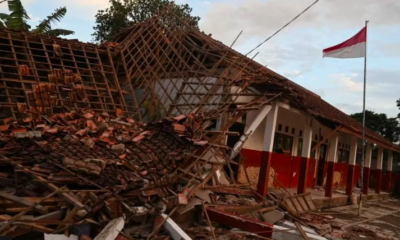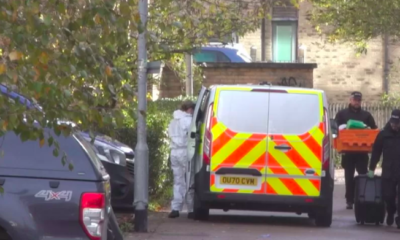
Scotland’s first national schools strike since the 1980s will begin later with a one-day walkout by teachers.
The strike over pay will affect students at nearly every primary and secondary school as well as many council nurseries.Unions rejected a revised pay offer on Tuesday because it was “insulting.”However, their demands for a 10% pay increase were described as “unaffordable” by Education Secretary Shirley-Anne Somerville.Ms. Somerville stated that the new pay offer from employer Cosla, which would have seen rises of up to 6.75% for the lowest paid, was fair.Members of the Educational Institute of Scotland (EIS) and the Association of Head Teachers and Deputes Scotland (AHDS) are striking at Scottish schools amid nationwide industrial action on Thursday.Workers from the University and College Union (UCU) will start strikes at 150 universities to protest pay, working conditions, and pension cuts.After negotiations failed to reach an agreement, Royal Mail employees will also return to picket lines for ten more strike days during the busiest time of the year for the postal service.At the same time, teachers in other parts of the UK are being asked if they want to strike over pay as well.During the most recent teacher strike in Scotland, which took place in the middle of the 1980s, schools rarely closed completely.Students could continue to attend classes with teachers who belonged to different labor unions.The EIS’s actions will result in the closure of nearly all primary, secondary, and additional support needs schools, and it currently represents approximately 80% of the country’s teachers.In Orkney and Shetland, only a few primary schools will remain open.Additionally affected are numerous early childhood learning centers and nurseries.In the morning, teachers will be on picket lines outside schools, at rallies in Aberdeen, Dundee, Glasgow, and Inverness, and in the afternoon, outside the Scottish Parliament in Edinburgh.EIS has warned that additional strikes could occur in December.Additionally, it stated that primary teachers would go on strike on January 10, followed by secondary teachers the following day, with additional strikes in February.On December 7 and 8, the Scottish Secondary Teachers Association and NASUWT intend to go on strike, which could result in the closure of some schools and schedule disruptions in others.After months of discussions with Cosla, the umbrella organization for the councils, and the Scottish government, EIS general secretary Andrea Bradley stated that they had been “forced into this strike.”She stated, “They have offered a series of substandard offers that fall far short of the justifiable expectations of Scotland’s hard-working teaching professionals.” These offers fall far below the rate of inflation.Ms. Bradley went on to say that teachers had responded to the most recent offer from Cosla with “great anger.””Compared to the previously rejected offer, Scotland’s teachers will actually receive an additional 71p per week from their much-hailed “generous and progressive” offer.”Parents’ representatives stated that strikes could present problems for families. There is no improvement at all for the majority of teachers.”According to Leanne McGuire of Glasgow City Parent’s Group, school closures would be especially challenging for working-single parents, those without a support system, and children who require additional assistance.She stated, “Those students really thrive on routine, and when that routine is broken, it can cause them a great deal of distress, which in turn causes a great deal of stress for parents.”Ms. Somerville expressed her “very disappointed” that the strike would cause problems for children and their families.”We have a fixed budget that has already been used up for this year, so doing anything that would increase our resolution on this would require additional funding.”On Thursday, Friday, and November 30, employees at 17 Scottish universities are expected to strike in a separate dispute.A nationwide strike over pay, working conditions, and pensions is expected to include approximately 8,000 workers in Scotland.Although the impact would vary from institution to institution, the University and College Union (UCU) anticipated that some tutorials and lectures would be canceled.





































































































































































































































































































































































































































































































































































































































































































































RSS